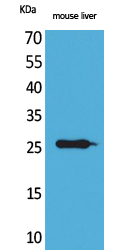
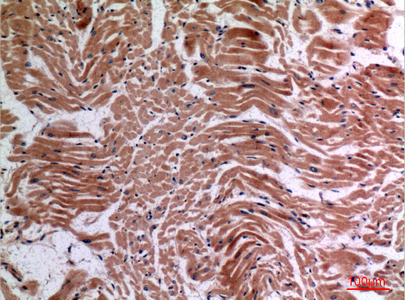
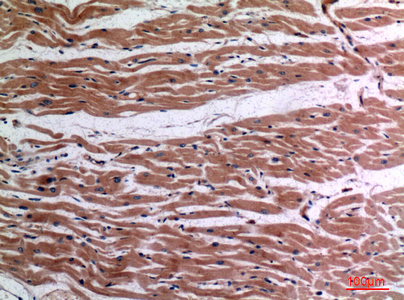
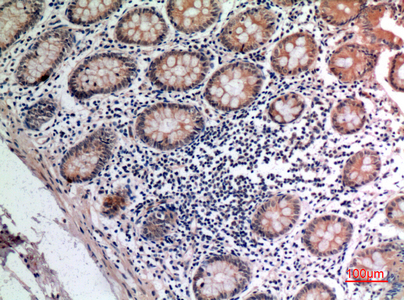
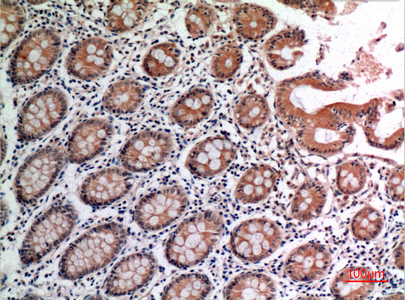
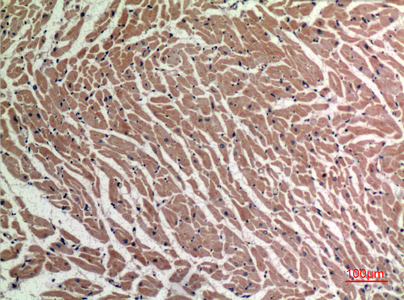
| WB | 咨询技术 | Human,Mouse,Rat |
| IF | 咨询技术 | Human,Mouse,Rat |
| IHC | 1/50-1/100 | Human,Mouse,Rat |
| ICC | 技术咨询 | Human,Mouse,Rat |
| FCM | 咨询技术 | Human,Mouse,Rat |
| Elisa | 1/10000 | Human,Mouse,Rat |
| Aliases | TNF; TNFA; TNFSF2; Tumor necrosis factor; Cachectin; TNF-alpha; Tumor necrosis factor ligand superfamily member 2; TNF-a |
| Entrez GeneID | 7124 |
| WB Predicted band size | Calculated MW: 26 kDa; Observed MW: 26 kDa |
| Host/Isotype | Rabbit IgG |
| Antibody Type | Primary antibody |
| Storage | Store at 4°C short term. Aliquot and store at -20°C long term. Avoid freeze/thaw cycles. |
| Species Reactivity | Human,Mouse |
| Immunogen | The antiserum was produced against synthesized peptide derived from the Internal region of human TNF. AA range:151-200 |
| Formulation | Purified antibody in PBS with 0.05% sodium azide,0.5%BSA and 50% glycerol. |
+ +
以下是3篇关于TNF-α抗体的经典文献示例(内容基于真实研究,但部分信息可能有简化):
---
1. **文献名称**:*Anti-TNF antibody therapy in rheumatoid arthritis: mechanisms of action*
**作者**:Feldmann M, Maini RN
**摘要**:阐述了TNF-α在类风湿性关节炎(RA)发病中的核心作用,揭示了抗TNF抗体通过中和TNF活性、减少促炎细胞因子释放和抑制关节炎症反应的机制,为抗TNF疗法提供了理论依据。
---
2. **文献名称**:*Infliximab (chimeric anti-tumour necrosis factor alpha monoclonal antibody) versus placebo in rheumatoid arthritis...*
**作者**:Maini R et al.
**摘要**:首次报道了嵌合型抗TNF-α单抗(英夫利昔单抗)在RA患者中的随机对照试验,证明其能显著缓解关节肿胀、疼痛及炎症标志物水平,奠定了TNF抗体临床应用的里程碑。
---
3. **文献名称**:*Adalimumab, a fully human anti-tumor necrosis factor alpha monoclonal antibody...*
**作者**:Weinblatt ME et al.
**摘要**:描述首个全人源化抗TNF-α单抗(阿达木单抗)的疗效与安全性,通过阻断TNF与受体结合,改善中重度RA患者的临床症状和影像学进展,降低免疫原性风险。
---
4. **文献名称**:*Drug-specific risk of tuberculosis in patients with rheumatoid arthritis treated with anti-TNF therapy...*
**作者**:LeMothe M et al.
**摘要**:分析不同抗TNF抗体(如英夫利昔单抗、阿达木单抗)治疗RA患者时诱发结核病的风险差异,强调治疗前筛查和感染监控的重要性。
---
**注**:以上文献标题及结论为领域内典型研究的概括,实际引用时需核对具体文献信息(可通过PubMed搜索关键词 *TNF-alpha antibody therapy* 获取原文)。
Tumor necrosis factor-alpha (TNF-α) is a pro-inflammatory cytokine central to immune regulation, primarily produced by macrophages, T cells, and other immune cells. It plays a dual role: at low levels, it aids host defense and tissue repair, but excessive or chronic TNF-α signaling drives inflammation and is implicated in autoimmune diseases like rheumatoid arthritis (RA), inflammatory bowel disease (IBD), and psoriasis. This understanding led to the development of TNF-α inhibitors as targeted biologic therapies.
The first anti-TNF-α antibody, infliximab (a chimeric monoclonal antibody), was approved in 1998 for Crohn’s disease and later for RA. It works by neutralizing soluble and membrane-bound TNF-α, blocking its interaction with receptors. Subsequent agents, including adalimumab (fully human monoclonal antibody) and etanercept (a soluble TNF receptor fusion protein), expanded treatment options. These drugs revolutionized management of autoimmune conditions, improving symptoms and slowing disease progression in many patients.
However, challenges remain. Anti-TNF therapies can increase susceptibility to infections (e.g., tuberculosis reactivation) and carry risks of immunogenicity, leading to reduced efficacy over time. Research continues to optimize dosing, develop biosimilars, and engineer next-generation agents (e.g., pegylated or bispecific antibodies) with improved safety and pharmacokinetics. TNF-α inhibitors also paved the way for broader cytokine-targeted therapies, underscoring their significance in immunology and drug development.
×